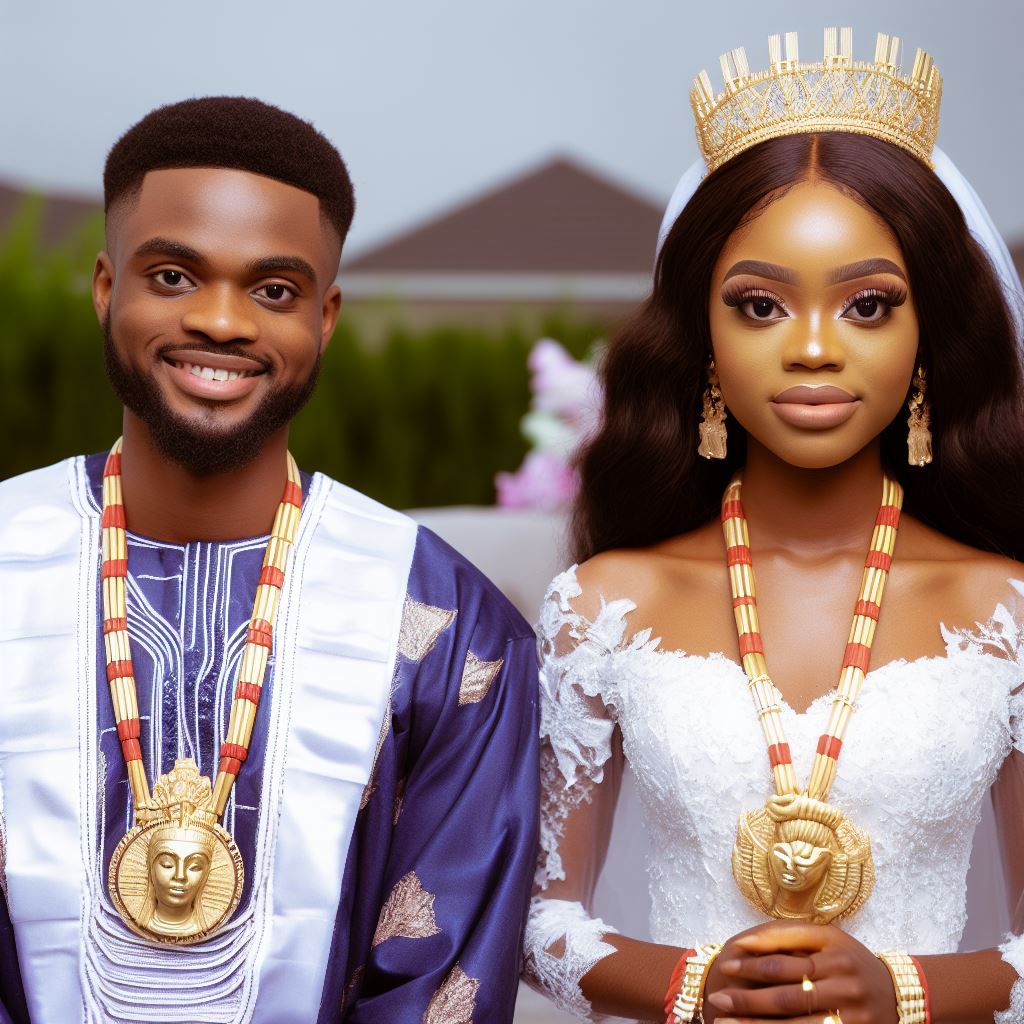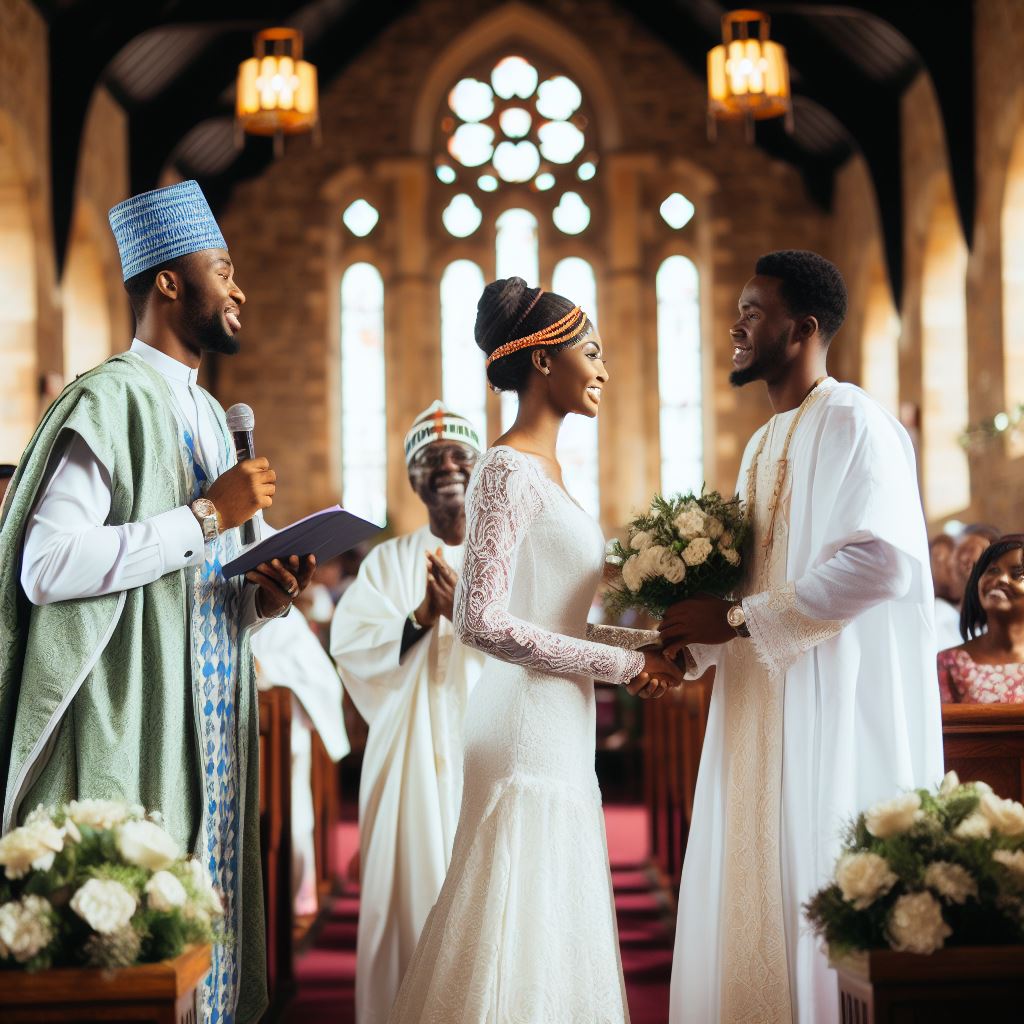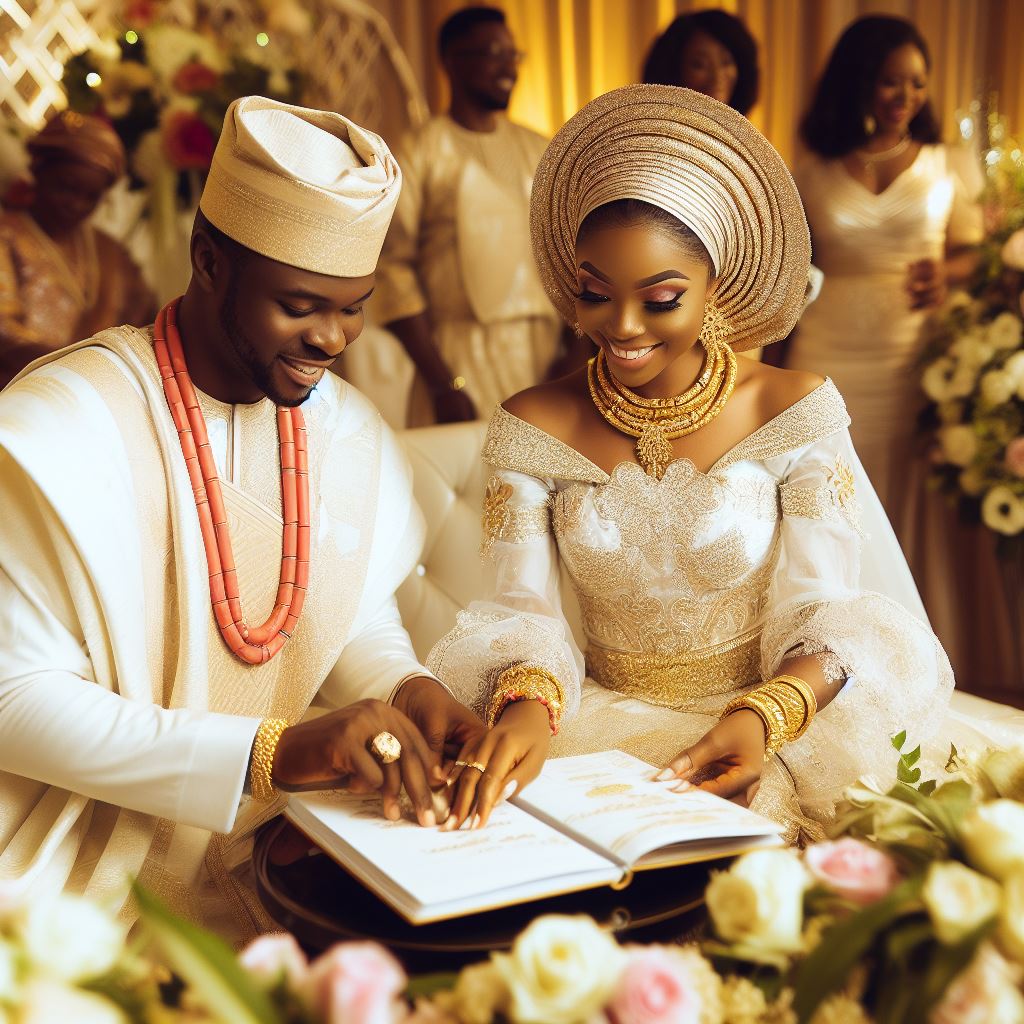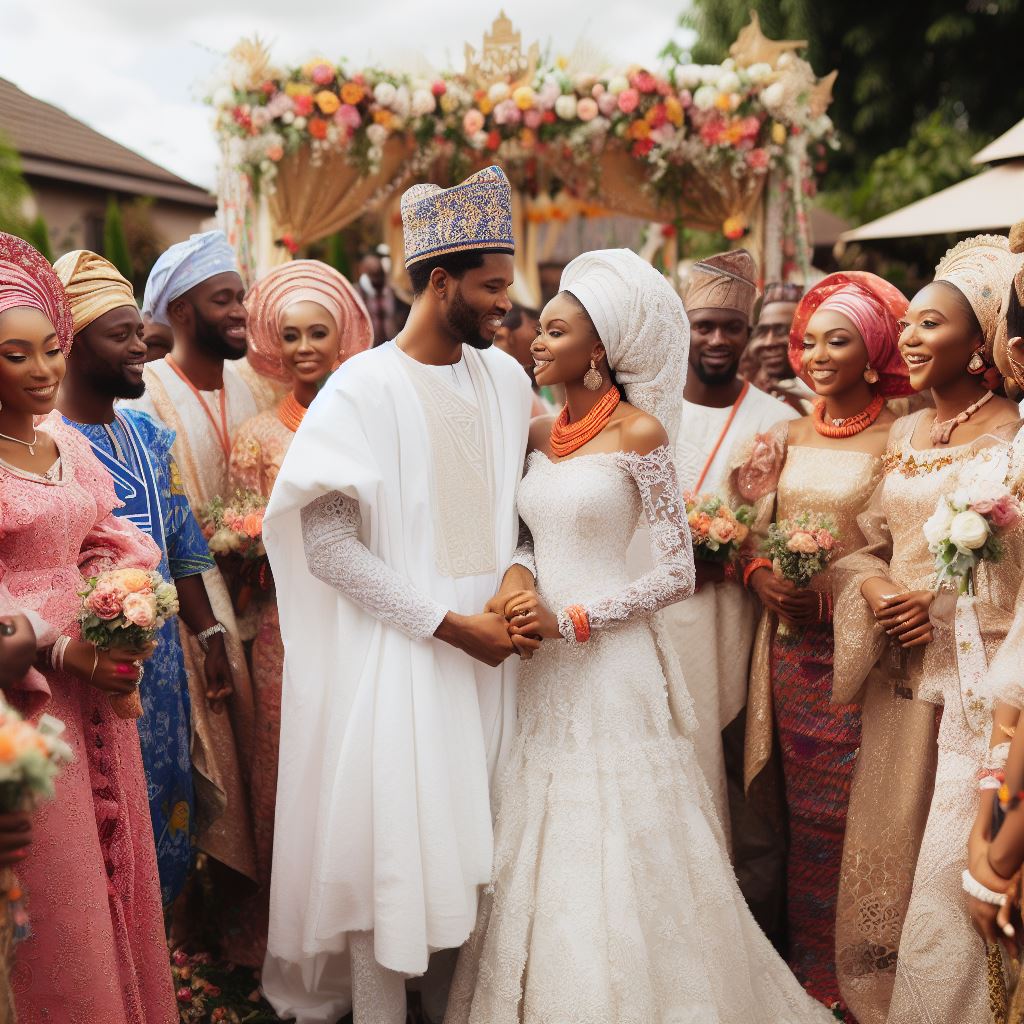Introduction
Nigerians have expressed mixed opinions regarding the reality show “Married at First Sight.”
This popular show has gained international fame.
In this blog post, we aim to explore the diverse reactions of Nigerians towards the show.
The concept of “Married at First Sight” involves couples getting legally married without meeting beforehand.
This unconventional approach to finding love has intrigued audiences worldwide.
Nigerians have also been captivated by the show, prompting various reactions.
While some Nigerians embrace the idea of finding love through unconventional means, others question the validity and practicality of such an approach.
The show has sparked heated debates among Nigerians about the genuineness of the marriages formed on the show.
Many Nigerians appreciate the show’s attempt to challenge societal norms and explore alternative paths to love.
They see it as an opportunity for individuals who struggle with traditional dating and matchmaking methods.
However, there is also concern among Nigerians that the show trivializes the sacred institution of marriage.
Critics argue that the rushed nature of the unions undermines the seriousness and commitment required for a successful marriage.
Furthermore, cultural and religious beliefs influence many Nigerians’ opinions on the show.
Some feel that the concept contradicts their values and traditions, promoting impulsive decisions and potential disillusionment.
As Nigerians debate the merits and drawbacks of “Married at First Sight,” it is clear that the show has sparked a range of emotions and opinions.
This blog post aims to delve deeper into the perspectives and reasons behind Nigerians’ varied reactions to the show.
In subsequent sections, we will explore the themes of romance, commitment, cultural implications, and long-term effects on the couples involved, offering a comprehensive analysis of Nigerians’ response to “Married at First Sight.”
Stay tuned for an insightful journey into the complex world of Nigerian viewers.
Background of “Married at First Sight”
Married at First Sight is a reality TV show that originated in Denmark in 2013.
The show follows the concept of arranged marriages, where individuals agree to marry someone they have never met before.
Participants are matched by a team of experts based on compatibility and personality traits.
Once married, the couples go on a honeymoon and live together for a few weeks to see if they can build a successful relationship.
At the end of the experiment, they have to decide whether to stay married or get a divorce.
This unique concept of marrying a stranger has captured the attention of viewers worldwide.
The Show’s Success and Longevity in Various Countries
“Married at First Sight” has gained immense popularity and has been successfully adapted in numerous countries.
The show has been broadcast in the United States, United Kingdom, Australia, Germany, and many others.
Each country has its own version, but the core concept remains the same, resonating with audiences globally.
The show’s success can be attributed to its ability to generate drama, emotional moments, and intense conflicts.
Viewers are drawn to the idea of witnessing strangers navigate the complexities of marriage.
The Basic Premise of Individuals Getting Married Without Knowing Each Other Beforehand
The central premise of “Married at First Sight” revolves around couples getting married without any prior knowledge of each other.
Participants put their trust in a team of experts who use in-depth psychological evaluations and compatibility tests to match them.
They believe that love can grow and endure despite the lack of initial familiarity.
Through the show, participants are challenged to build a strong foundation based on trust, communication, and a shared commitment.
The experiment provides a unique perspective on love, marriage, and the complexities of forming a lasting relationship.
Read: ‘Married at First Sight’: Can Instant Weddings Last in Nigeria?
Positive Opinions
Unconventional Love Quest
Nigerians are buzzing with positive opinions about “Married at First Sight.” Here’s why:
- Innovative Approach: Many hail the show for its unconventional method of matchmaking. It’s a fresh twist on love.
- Breaking Stereotypes: Some appreciate how it shatters stereotypes by proving love can be found in unexpected places.
- Reality with a Purpose: The show’s sincerity in finding true love appeals to those who crave authenticity on TV.
A Leap of Faith
Individuals who endorse “Married at First Sight” believe that love isn’t a predictable science. They admire:
- Taking Risks: The show’s daring premise resonates with those who believe in seizing love, even in unexpected places.
- Learning from Mistakes: It’s seen as a learning experience, a bold step in the pursuit of lasting love.
- Destiny’s Hand: For some, the show aligns with their belief in destiny and how chance encounters can lead to lifelong love.
Believers in Destiny
Supporters from Nigeria have shared their stories about how “Married at First Sight” aligns with their views:
- Predestined Marriages: Some recall family tales of arranged marriages leading to deep, enduring love.
- Real-Life Success: Stories abound of couples who found enduring love through unconventional means.
- Rooted in Tradition: For many, the show’s approach echoes Nigeria’s rich traditions, where destiny plays a significant role in unions.
In a country where tradition and modernity coexist, “Married at First Sight” has struck a chord with those who appreciate love’s unpredictability and are open to unconventional paths to happiness.
Read: The Reality TV Trend: Analyzing ‘Married at First Sight’s’ Success
Negative Opinions
In Nigeria, “Married at First Sight” sparks a flurry of negative opinions. Here’s a concise rundown of these concerns:
- Doubts about Authenticity: Many Nigerians question the authenticity of the show. They wonder if love can truly blossom from a blind marriage.
- Ethical Dilemmas: The show’s ethical grounds are shaky for some. They worry about manipulating people’s emotions for entertainment.
- Cultural Clash: Cultural factors play a significant role in the skepticism. Traditional Nigerian marriages involve extended families’ blessings and elaborate ceremonies, making ‘at first sight’ unions seem hasty.
- Religious Reservations: Religion, too, contributes to the skepticism. For many Nigerians, faith plays a pivotal role in marriage, and they doubt if this show respects those values.
- Questionable Success Rate: Nigerians scrutinize the show’s success rate. Is it fair to gamble with people’s lives for TV ratings?
- Publicity Over Privacy: Privacy concerns arise. Some feel participants are exposed to the public eye without their consent.
- Skeptical Outcomes: Nigerians often question the lasting outcomes. Are these marriages built to endure, or are they fragile for the camera?
- Stress on Mental Health: The emotional toll on participants is another concern. Many wonders if the show’s intense scrutiny is detrimental to their mental health.
In the midst of these negative opinions, it’s clear that “Married at First Sight” faces a steep uphill battle to win over the hearts and minds of Nigerians.
The clash between traditional values and modern televised matchmaking is real, and the show must navigate these concerns to gain broader acceptance in the country.
Read: Finding True Love: Do Shows Like ‘Married at First Sight’ Help?

Explore Further: Expressing Love: Pidgin English Wedding Messages
See Related Content: How to Tailor a Proposal Speech: Tips for the Nigerian Lover
Controversial Discussions
Many Nigerians debate whether “Married at First Sight” is a suitable approach to finding love.
The show has sparked conversations on the ethics and morality of arranged marriages.
Discussions have arisen regarding the show’s potential to trivialize the sacred institution of marriage.
Some argue that the show is exploiting participants’ emotions for the sake of entertainment.
Controversy arises as critics question the long-term success rate of marriages formed on the show.
Traditionalists vs. Modernists
The concept of arranged marriages has long been a topic of debate between traditionalists and modernists.
“Married at First Sight” amplifies this discussion.
Traditionalists argue that arranged marriages preserve cultural and family values, emphasizing compatibility based on shared backgrounds and beliefs.
On the other hand, modernists believe in the importance of personal choice and autonomy, advocating for individuals’ freedom to select their own life partners.
The show challenges traditionalists by presenting a unique take on arranged marriages, which combines elements of choice and compatibility testing.
Modernists, however, question the show’s legitimacy, claiming it simplifies the complexities of modern relationships and reduces marriage to a social experiment.
Impact on Nigerians’ Perceptions
“Married at First Sight” has had a significant impact on how Nigerians view marriage and relationships.
The show’s influence can be observed in various ways.
Firstly, the show has sparked conversations within Nigerian communities about the strengths and weaknesses of arranged marriages.
Many Nigerians have begun reevaluating their own expectations and criteria for a life partner, considering the show’s unique approach to matchmaking.
Furthermore, the program has shed light on the challenges and realities of marital life, prompting individuals to reflect on their own readiness for commitment.
While some viewers find the show intriguing and see it as an opportunity for personal growth, others criticize it for sensationalizing the sacred bond of marriage.
The show has also led to increased awareness and dialogue around the importance of communication, trust, and compromise in a relationship.
Additionally, “Married at First Sight” has encouraged Nigerians to question societal and cultural norms surrounding marriage, love, and commitment.
Essentially, the show’s controversial nature has sparked a range of reactions and discussions, highlighting the diverse perspectives within Nigerian society.
It is evident that “Married at First Sight” has the power to challenge long-held beliefs and reshape Nigerians’ perceptions of marriage and relationships.
Whether one supports or opposes the show, its influence cannot be denied, as it continues to provoke thought and ignite debates throughout the country.
Read: How ‘Married at First Sight’ Reflects & Challenges Nigerian Values
Cultural and Societal factors
- The opinions of Nigerians on the show are influenced by cultural and societal factors.
- Cultural values and beliefs play a significant role in shaping perspectives on relationships and marriage in Nigeria.
- In Nigeria, marriage is seen as a union not just between two individuals but also their families.
- Religion, particularly Christianity and Islam, heavily influence Nigerians’ views on marriage.
- Hierarchical family structures and the concept of extended families impact opinions on the show.
- Nigeria is a diverse country with various ethnic groups, each with its own cultural practices and beliefs.
- The influence of traditional practices and customs can impact opinions on unconventional marriage shows.
- Gender roles and expectations within Nigerian society also shape opinions on the show.
- The media plays a significant role in shaping societal norms and expectations regarding love and marriage.
- Portrayals of romantic relationships and marriages in Nigerian movies and television shows influence opinions.
- Media exposure to international shows like “Married at First Sight” may also influence Nigerians’ opinions.
Analyzing cultural and societal factors
The different cultural and societal factors in Nigeria contribute to the diverse opinions on the show.
Many Nigerians hold traditional views on marriage, stressing the importance of family approval and compatibility.
Religious beliefs often influence opinions on the show, with some seeing it as contradictory to their faith.
Gender roles play a significant role, as some Nigerians may believe that the show undermines traditional gender dynamics.
Traditional practices, such as arranged marriages, may lead to skepticism or curiosity about unconventional marriage shows.
The influence of media, both local and international, also shapes opinions on relationships and marriage.
Nigerians who consume a lot of romantic movies or shows may have different expectations and perspectives.
Societal norms and expectations regarding love and marriage are constantly evolving due to media influence.
However, there are also Nigerians who appreciate the unique concept of “Married at First Sight.”
They see it as an opportunity to challenge traditional norms and explore alternative ways of finding love.
Shaping of perspectives
Cultural values and beliefs influence Nigerians’ perspectives on relationships and marriage.
The emphasis on family approval means that Nigerians often prioritize their families’ opinions when it comes to marriage.
This can lead to skepticism or concern about a show that seemingly disregards family approval.
Religious beliefs influence Nigerians’ expectations of relationships and marriage, shaping their views on the show.
Some may see the show as incompatible with their faith or as promoting values inconsistent with their religious teachings.
Media portrayals of love and marriage also shape perspectives on relationships in Nigeria.
While some Nigerians may view romantic shows as unrealistic or exaggerated, others may see them as aspirational.
The exposure to international shows like “Married at First Sight” can introduce new perspectives on marriage.
It may challenge traditional beliefs and encourage Nigerians to consider different approaches to finding a life partner.
In general, cultural and societal factors heavily influence Nigerians’ opinions on shows like “Married at First Sight.”
Traditional beliefs, religious values, gender roles, and media portrayals all shape perspectives on relationships and marriage.
While there may be divided opinions, the diversity of perspectives reflects the complexity of Nigerian society.
Ultimately, discussions around the show provide an opportunity for Nigerians to explore and redefine their attitudes towards love and marriage.
Conclusion
Nigerians have contrasting opinions regarding “Married at First Sight.”
Some believe it goes against cultural norms and undermines the sanctity of marriage.
Others see it as an opportunity to challenge traditional notions of love and find genuine connections.
The show has sparked important discussions about love, marriage, and societal norms, forcing Nigerians to reevaluate their beliefs and values.
It has highlighted the pressures and expectations placed on individuals when it comes to relationships.
Despite the differing opinions, “Married at First Sight” has undoubtedly captured the attention and engaged Nigerians in thought-provoking conversations.
It has provided a platform for discussing important topics related to relationships and marriage.
In a nutshell, the show has brought to light the complexities of love and the questions surrounding societal expectations.
While opinions may remain divided, the fact that Nigerians are actively engaging in these discussions signifies the show’s impact on the society.




